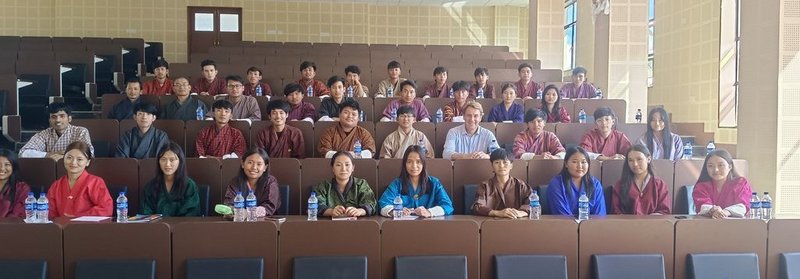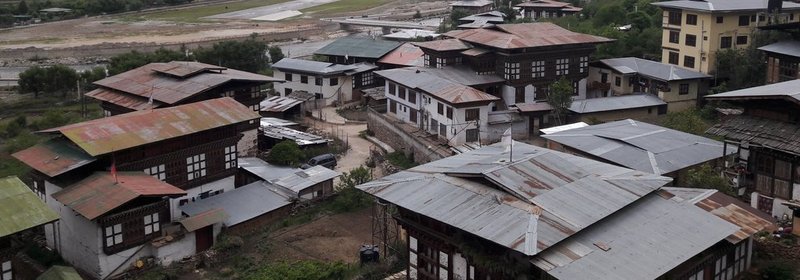Strengthening Capacity of Higher Engineering Education for Sustainable Buildings | HEESeB

Project Coordinator: Tshewang Lhendup
Coordinating Institution: Jigme Namgyel Engineering College (JNEC), Royal University of Bhutan
Partner Institution: University of Innsbruck (UIBK), Austria
Partner country: Bhutan
Project Duration: 1st February 2023 – 31st January 2026
Project overview
The project ‘Strengthening capacity of Higher Engineering Education for Sustainable Buildings’ abbreviated as HEESeB is an academic collaboration between the Jigme Namgyel Engineering College (JNEC), the Royal University of Bhutan and the University of Innsbruck. This collaboration aims to promote sustainable and resilient buildings in Bhutan, through extensive research and collaboration. The academic partnership will formulate a certificate programme in Timber Engineering for Energy Efficient Buildings (TEEEB) at JNEC, aiming to generate qualified manpower for sustainable and resilient infrastructure planning, design, construction and maintenance of timber structures. It will also lead to synergy of emerging technologies with natural building materials and age-old traditional practices through the transfer of knowledge and skills. Furthermore, this academic collaboration will be vital for professional development, addressing socio-economic and environmental challenges and harnessing niche opportunities in the field of sustainable development.
Project goals
1. Diversify academic programmes
- Develop a new academic programme on timber engineering for energy efficient buildings,
- Develop two new courses related to gender, equity and diversity sensitive science, technology, engineering and mathematics (STEM); building modelling and simulation, and HVAC
2. Improve teaching support services at JNEC
- Provide short-term courses on gender, equality and STEM in collaboration with UIBK
- Professional development in the operation and management of timber engineering laboratory equipment.
3. Sharing knowledge and experience to enhance the teaching and research capacity of JNEC through staff and student exchange
A cluster of timber structure buildings in Bhutan. Most of the structures are more than 20 years old. These buildings are vulnerable to earthquakes and natural disasters and are not energy efficient. HEESeB will assess the need for timber engineering and identify the types of specialisation courses and trainings required for engineers to construct sustainable buildings using timber, which is abundant in the country.
Reporting

HEESeB Report on the 1st project year
Within one year of project implementation, several significant outcomes were achieved. A needs analysis for the timber engineering course was conducted through a survey with 61 respondents, and the findings were presented to industry and academic experts. Based on this analysis, the project team designed a course structure covering Introduction to Timber, Timber Processing and Quality Control, Timber Construction Practices/Techniques, Maintenance and Retrofitting, and Energy-Efficient Buildings.
A four-day Training of Trainers (ToT) course on Gender Sensitive STEM Teaching was held for science teachers at JNEC, focusing on empowering women in STEM fields. Additionally, a two-day Building Energy Efficiency course was attended by 46 participants from JNEC, featuring discussions on improving building efficiency and energy simulation.
A one-day timber engineering course at JNEC, attended by 46 staff and students, covered building physics and structural timber engineering, including fire protection and insulation. Finally, a 10-day ToT at UIBK was attended by 10 JNEC staff who will teach the timber engineering course starting in July 2024.
